|
This past year, I provided weekly treatment with a small group of students in a Transition Class in a San Diego County high school district. These 18-19-year-old students were involved in vocational training and learning independent living skills. I used lessons, strategies and activities from my Growing G.R.E.E.N. InterActions Social Literacy Program to help the class improve their social skills so they could become successful, active participants within their community. I presented explicit instruction so they could understand that their actions affected others around them, the others they could consider being on the same Team with them. The students were guided to generate Common Team Goals and Team Rules collaboratively so they all could feel like they had some "ownership" in the ideas the group chose. With these Team goals and rules spelled out, it would be clear what kind of behavior was expected and what could be achieved if they all worked together, and thought about how well they were interacting. The students were given instruction about what it meant to be thoughtful vs. being impulsive in their actions. Thoughtful vs. impulsive behavior was acted out so they could see what these contrasting behaviors looked like and felt like. They were also given explicit instruction regarding what it meant to act in ways that were G.R.E.E.N.: Grateful, Respectful, Empathetic, Easygoing and Navigating. They were given strategies to navigate by staying calm, and were given scripts they could use to exhibit the other prosocial behaviors. Ethan had been one of the students in the class. Our time together started off with his not wanting to participate in our group discussions. He left the room without asking for permission. The classroom teacher and aides who joined in our lessons told me he was typically very impulsive and had difficulty staying calm when things did not go the way he expected. This was a challenge as he was involved in a High School Transition program in which he frequently had to take public transportation and participate in activities at various work sites. Needless to say, things did not always go as he expected. Ethan completed a self-assessment form known as the G.R.E.E.N. Actions Evaluation Chart in November of 2018. His teacher also filled out this form to note what he thought about Ethan's G.R.E.E.N. social skills. Ethan noted he never displayed Navigating behavior that was defined as being flexible when managing challenges to stay calm and make wise choices. Ethan gave himself a total of 9 (out of a possible score of 20). His teacher filled out the same form which also resulted in the same total score. Significantly, they both noted that Ethan never displayed behavior that showed he was able to navigate through challenging situations. His teacher noted Ethan acted easygoing, open-minded and cooperative only a little bit. Ethan was taught to engage in an integral self-calming strategy of the G.R.E.E.N. InterActions Program. This strategy involved stopping to take controlled breaths to then allow thinking of acting in ways that are good choice for you as well as others around you. Ethan was presented with a lesson about being flexible enough to accept constructive feedback from others. He then filled out a form that asked him whether he accepted feedback in various areas. It is interesting to note that in November of 2018 when Ethan was marking the areas in which he accepted constructive feedback and which areas he did not, he marked that he did not accept feedback for thinking before acting. This was an area in which he changed dramatically over the next few months, frequently asking for help to determine what action he should take, especially when a Plan B was needed. During this lesson, he wrote on the bottom of his paper: Getting constructive feedback helps me remember how to act better. Ethan was taught that it helped him and others when he was able to accept constructive feedback. He was provided with a printed guiding thought (one of several personally-relevant Guiding G.R.E.E.N. Thoughts®) to remind himself what to possibly think "in the moment" when someone was trying to provide him with constructive feedback. As he was learning to accept feedback to stay calm, Ethan was also taught that he can ask what he can do for a Plan B if it looks like the original Plan A is not possible. It was apparent that he often could not think of an alternative plan of action, but could engage in self-calming behavior and then ask someone what action they might suggest in the situation. He was provided with another personally relevant, printed Guiding G.R.E.E.N. Thought to remind him what to possibly think "in the moment" when something did not go according to his original plan. Starting in January, 2019, Ethan was asked to track his progress on his goal to stay calm, have a positive attitude and think of plan B. He initially noted he could stay calm only 5% of the time when something was upsetting him. Ethan started to display dramatic improvement in his self-control. He noted on 2/25/19: I self-calm when there is not Plan B..sometimes I just have to wait it out. Then on 3/4/19 he wrote, I am doing better with change. Ethan was guided to track his performance on a bar graph. Ethan started to show dramatic improvement in his self-control while in the community. It was necessary for staff to accompany him safely to his work sites. At the beginning of the year, it was hard to get Ethan to stay calm if something did not go as expected for him like his having to wait for a trolley that was not arriving on time. Eventually, he was able to accept a minimal cue to use his self-calming breathing strategy and follow "Plan B" which was to wait for the next trolley. He could even be encouraged to engage in basic conversation that he learned to pass the time in a social way while waiting. He drew the picture below showing how he learned to use his controlled breathing strategy to help him stay calm while waiting for the trolley. He self-generated writing the following on the bottom of his drawing: I am staying calm while waiting for the trolley. Ethan's teacher filled out G.R.E.E.N. Action Evaluation Charts again in March of 2019. The teacher noted that Ethan progressed from never displaying navigating behavior to independently displaying it a little. He also noted Ethan progressed from begin Respectful and Easygoing (cooperative) only a little bit in October to being Respectful and Easygoing half of the time in March. It was also noted that Ethan progressed from acting in a Grateful way half of the time to acting in this manner most of the time. Ethan's total increased from 9 to 13. Ethan initially did not display the ability to accept feedback which limited his ability to be trusted to interact appropriately in the community. In just a few months, Ethan learned to be much more willing to accept and even request input from others regarding what to do when a Plan B was necessary. He even progressed to being able to stay calm and make wise choices on his own a little bit. His behavior was much more grateful, respectful and cooperative. The improvement noted when comparing Ethan's social behavior on 3/25/19 to his initial functioning on 10/22/18 can be credited to the weekly G.R.E.E.N. InterActions lessons and multisensory activities provided by this speech-language pathologist and the follow-up provided by Ethan's teacher and his aides. Due to the use of the program's movie-style clapboard, Ethan displayed great eagerness to act out scenes that let him practice staying calm and requesting a possible Plan B when something happened that was unexpected. During the balance of Ethan's week in the classroom, in the community, and on job sites, the teaching staff reminded him of the thoughts and strategies that were generated and practiced during the direct lessons. Ethan benefited from the visual cues such as the personally relevant Guiding G.R.E.E.N. Thoughts that helped him "in the moment" to Think First of better choices he could make instead of acting impulsively. He also benefited from receiving G.R.E.E.N. Action Reports that reinforced him with written positive feedback when he displayed G.R.E.E.N. social behavior and movement toward achieving his Personal Goal. In just a few short months, Ethan learned to be open to suggestions from others, solicit and accept alternate plans of action when needed, and ultimately become a more respectful, cooperative and navigating student, peer and worker.
2 Comments
Leave a Reply. |
Meet the AuthorsHerb and Joanne Hein
Categories
All
|
©1980-2017 Hein Speech-Language Pathology, Inc. All rights reserved. Login.

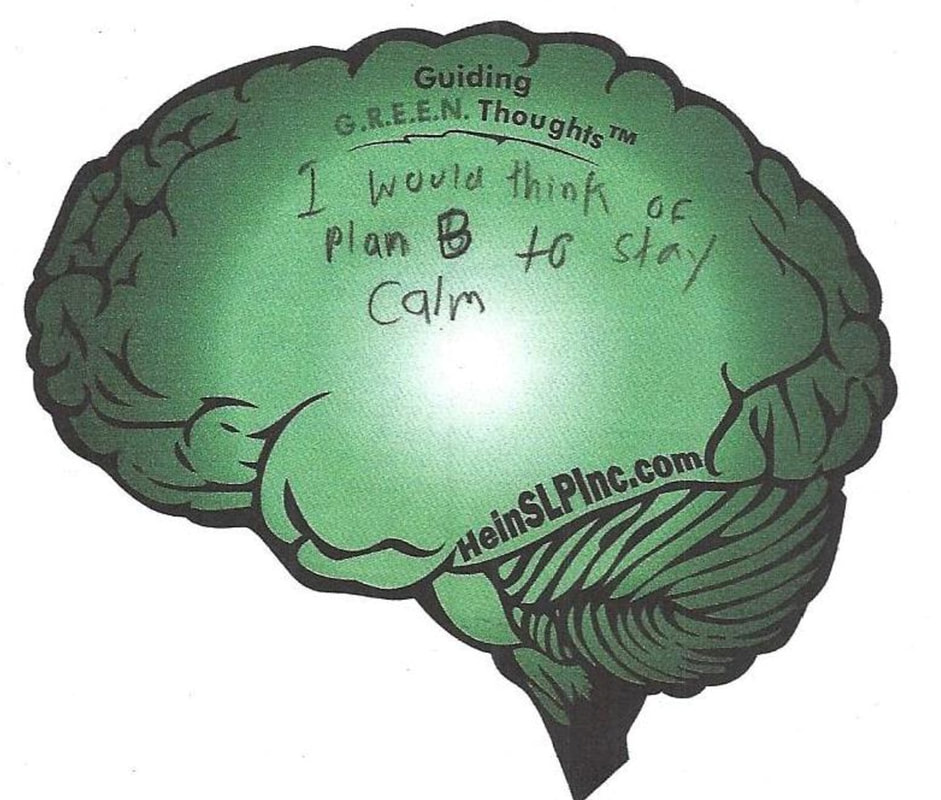
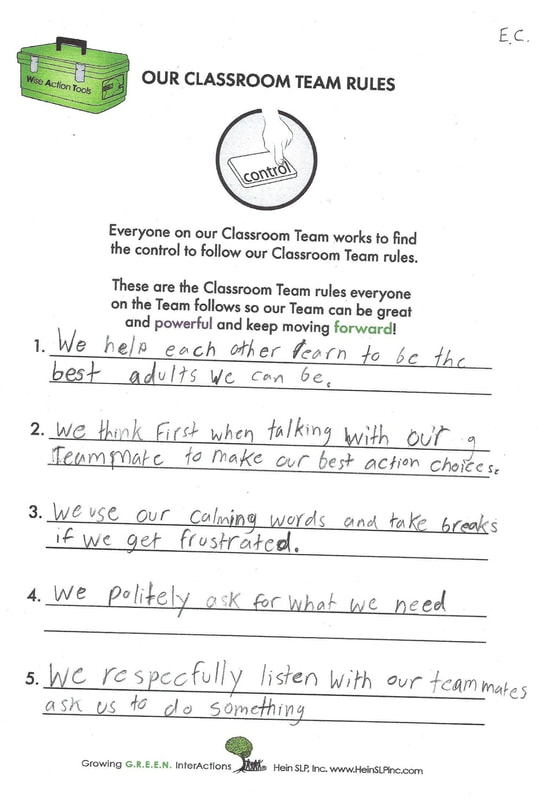
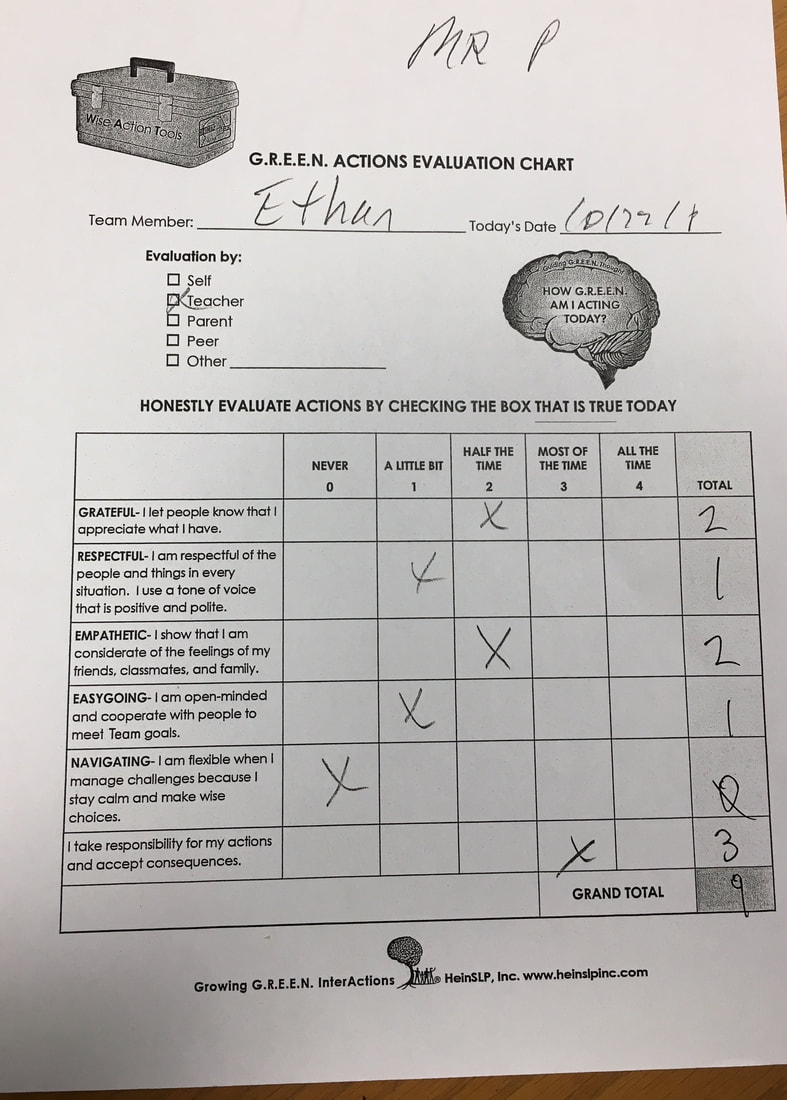
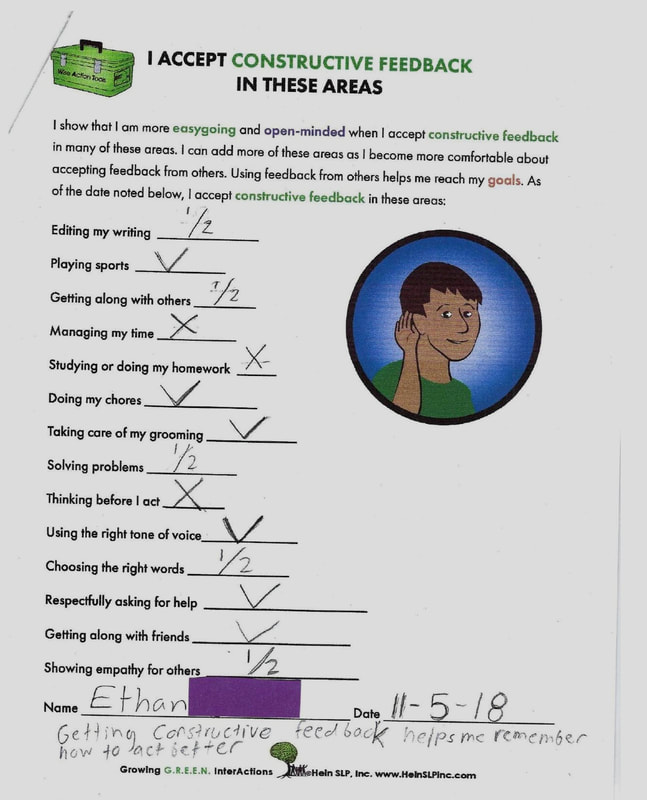
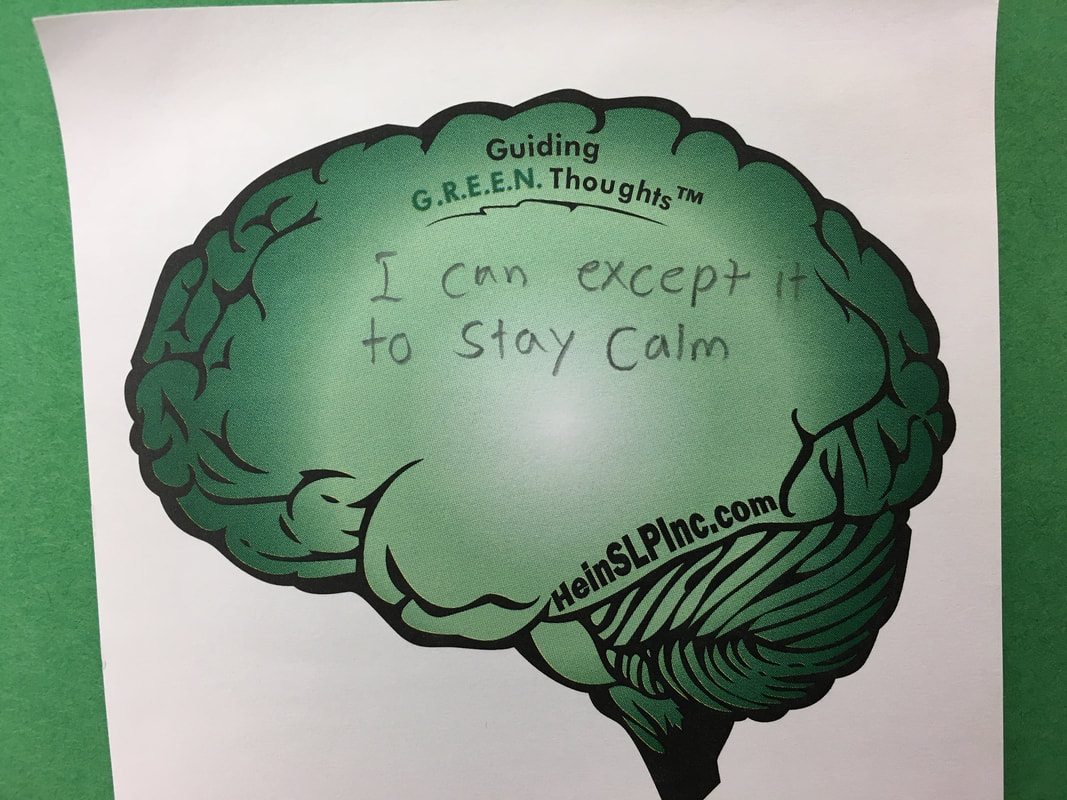
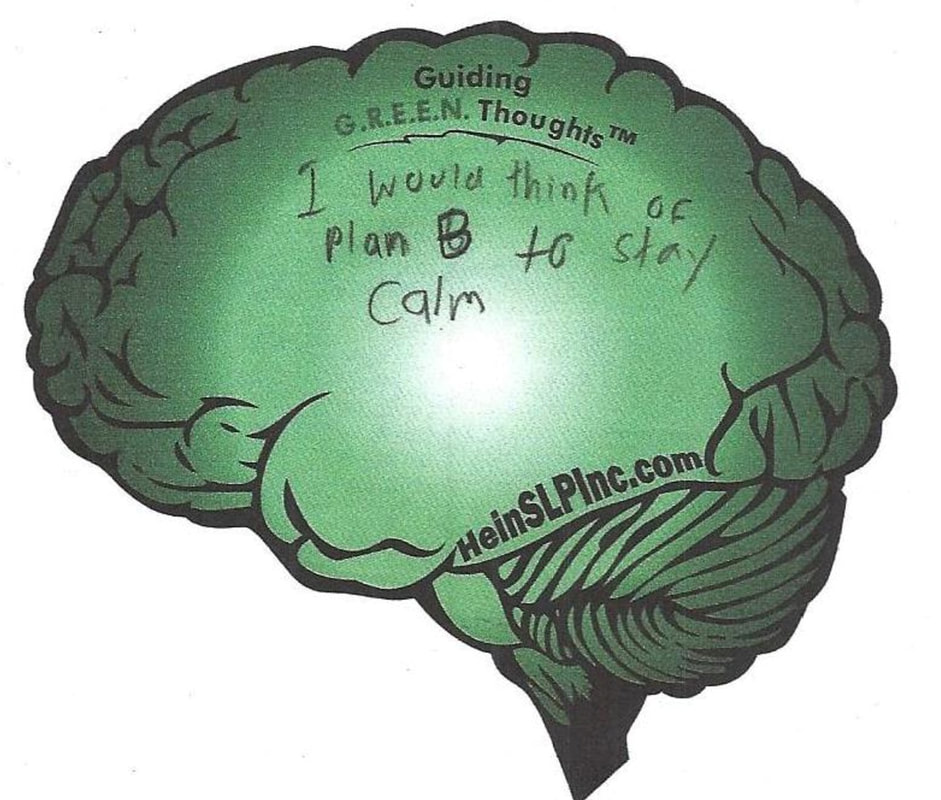
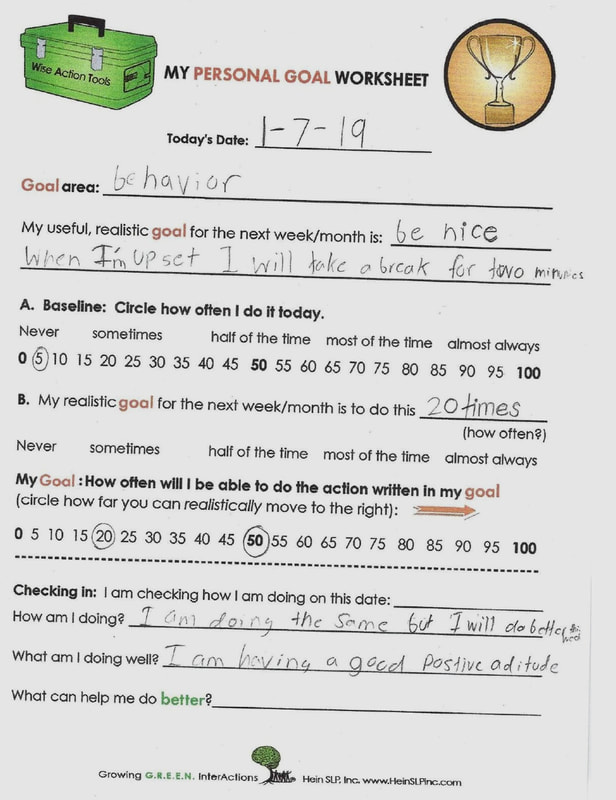
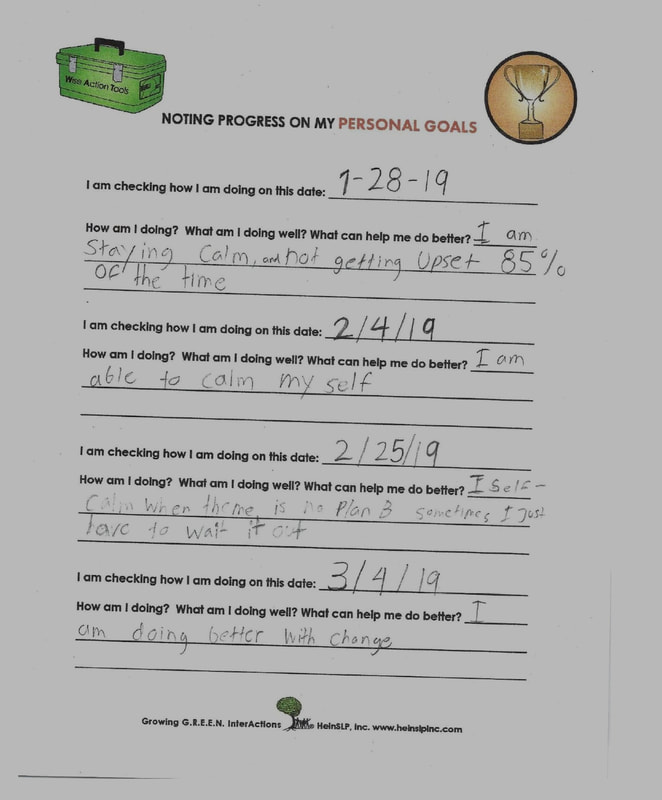
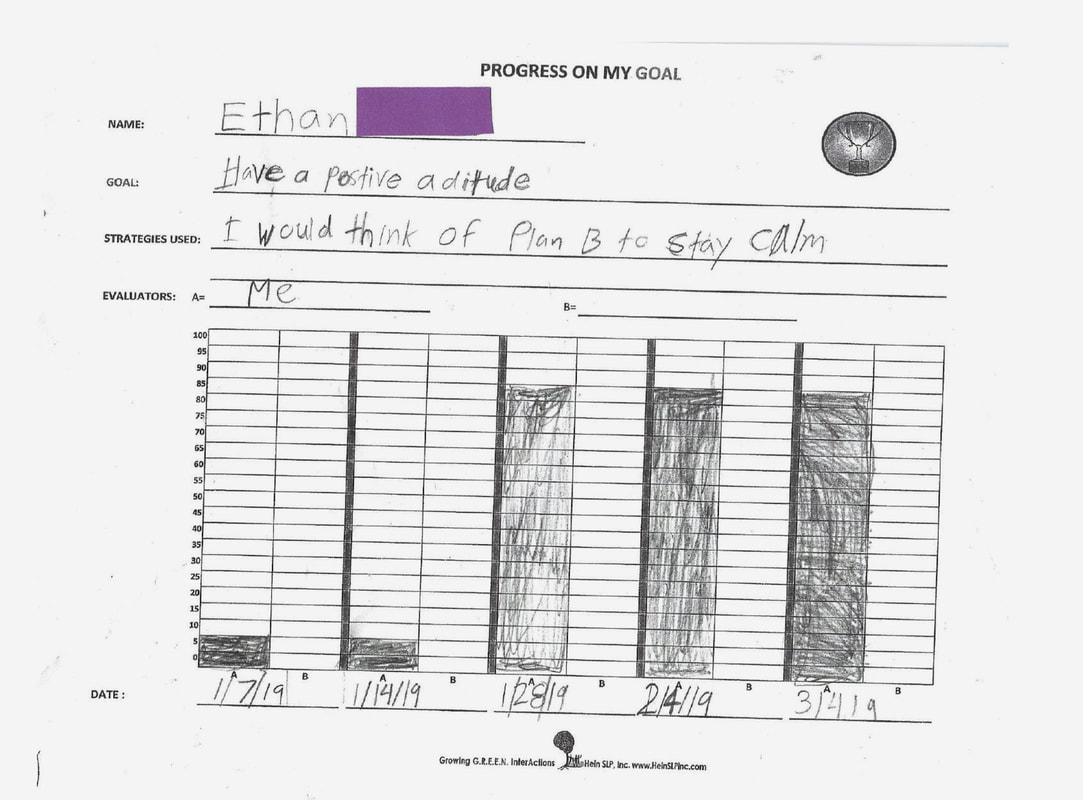
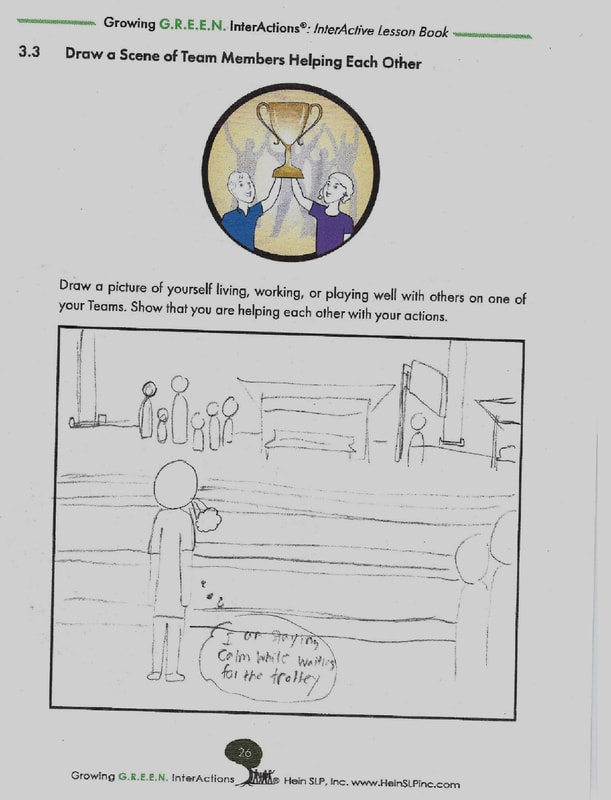
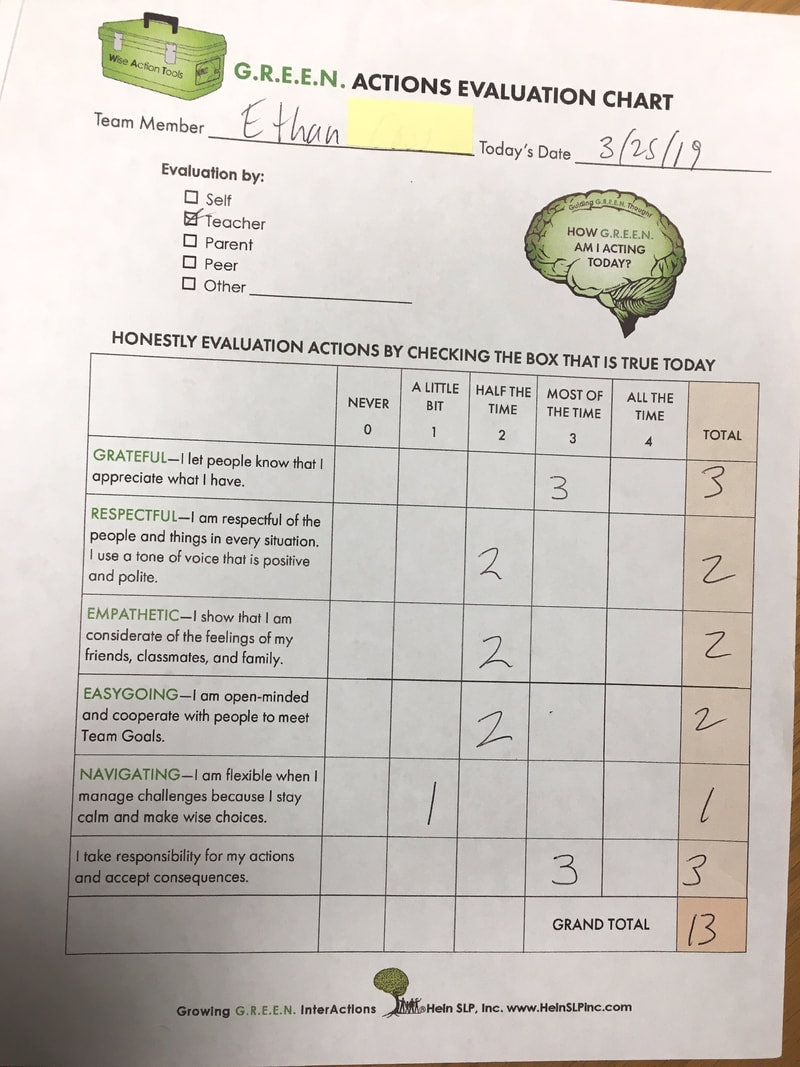
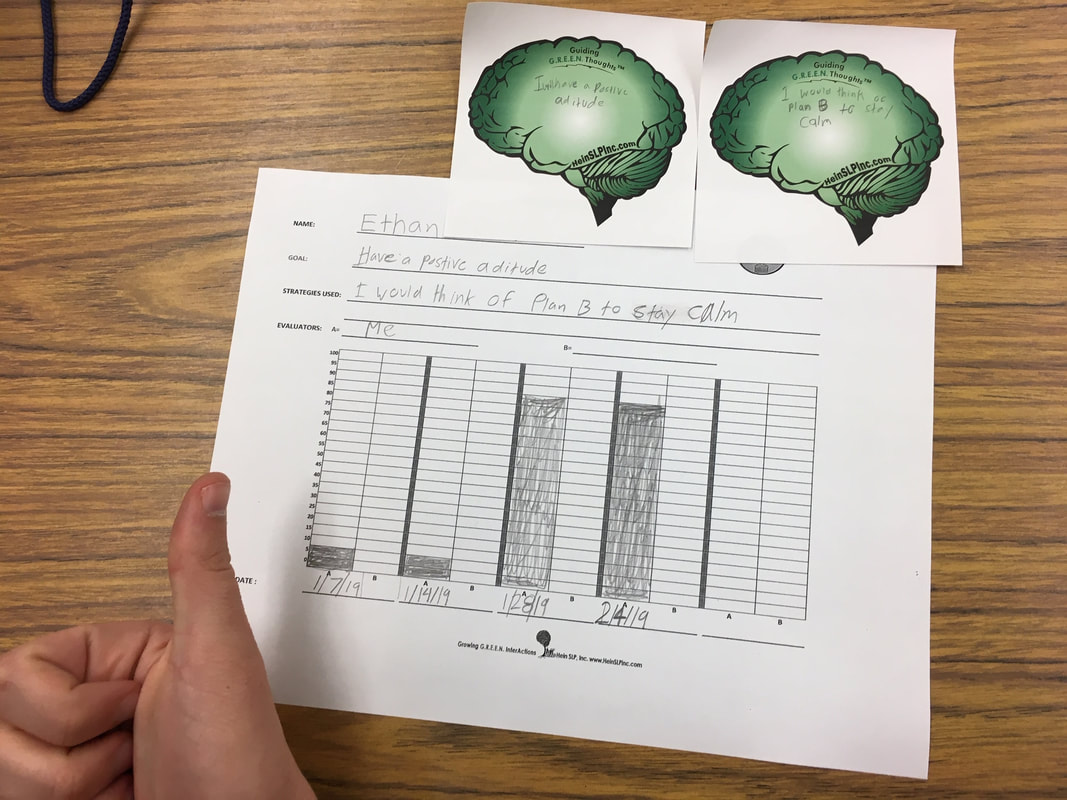
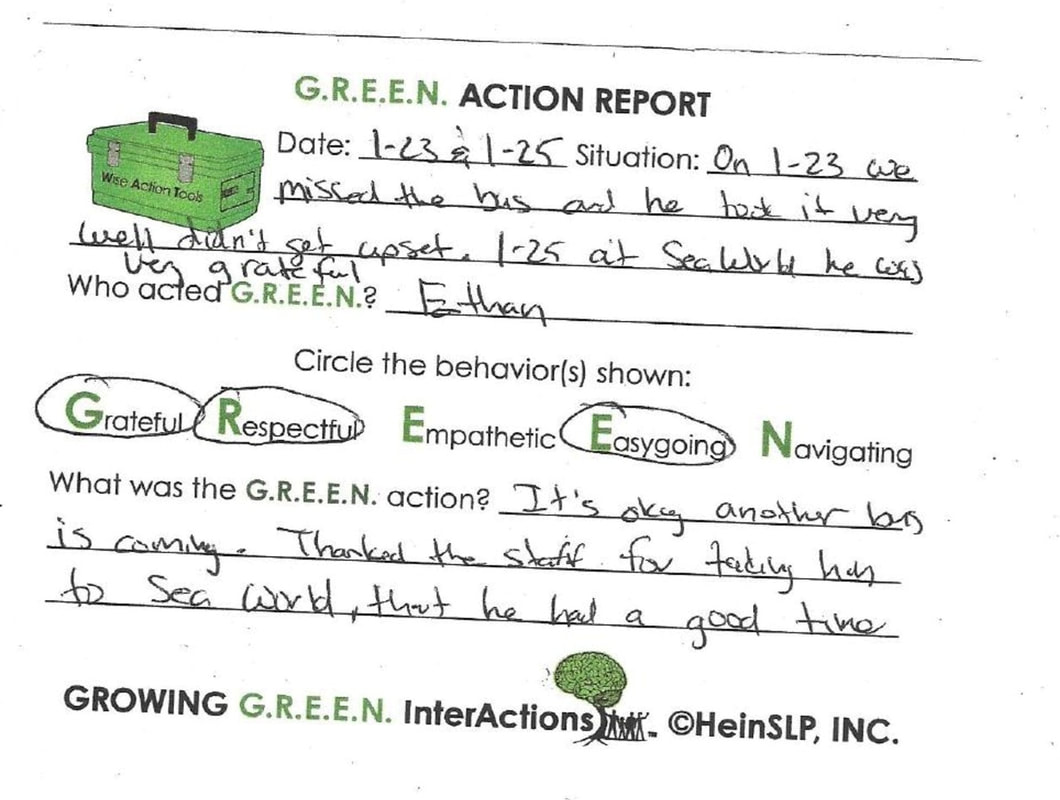
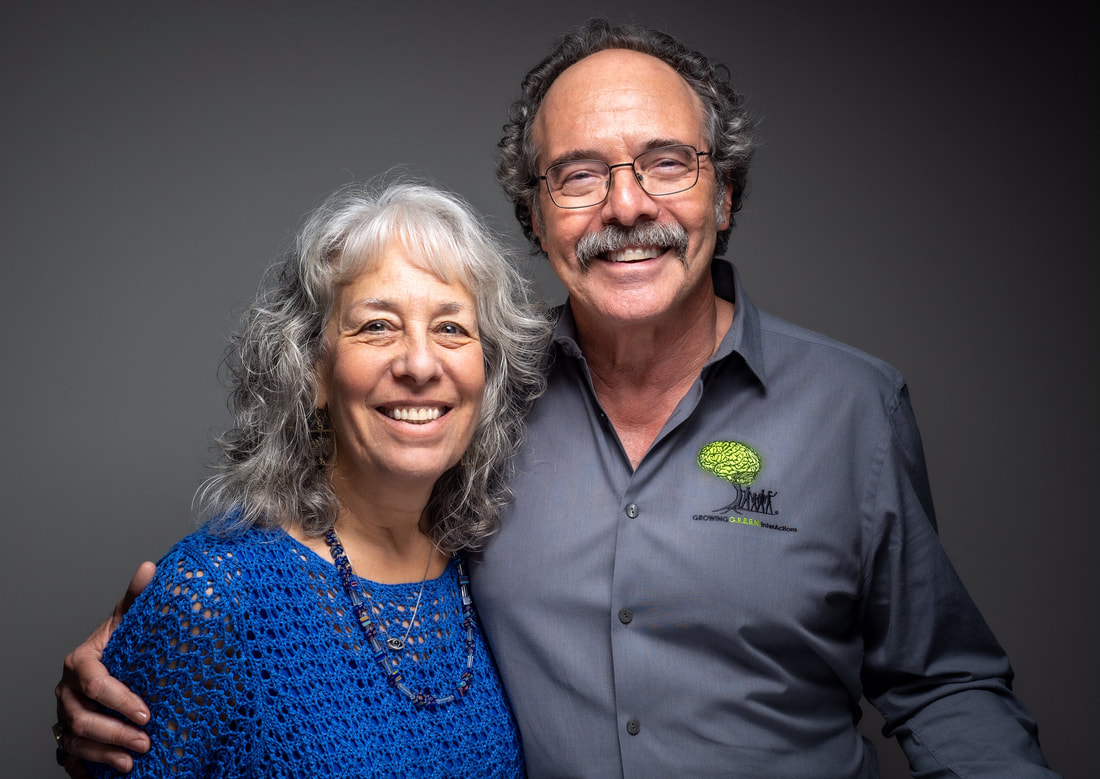
 RSS Feed
RSS Feed